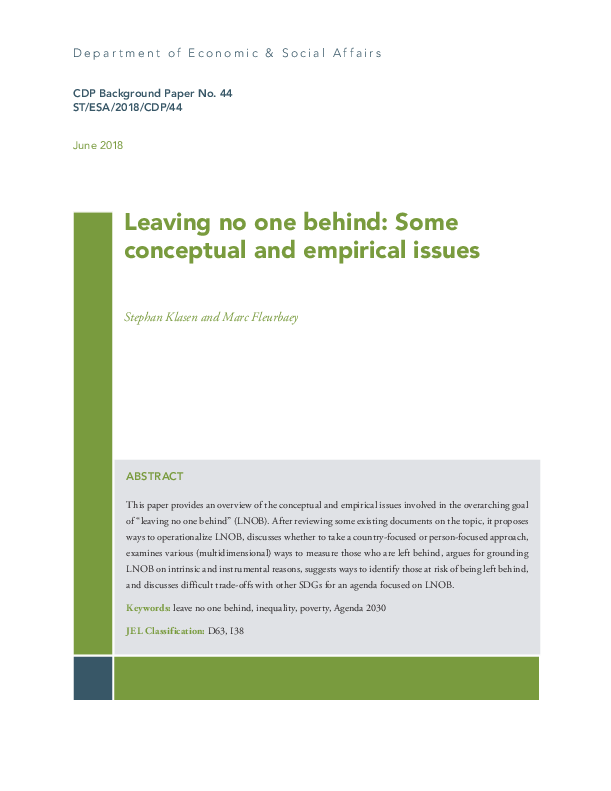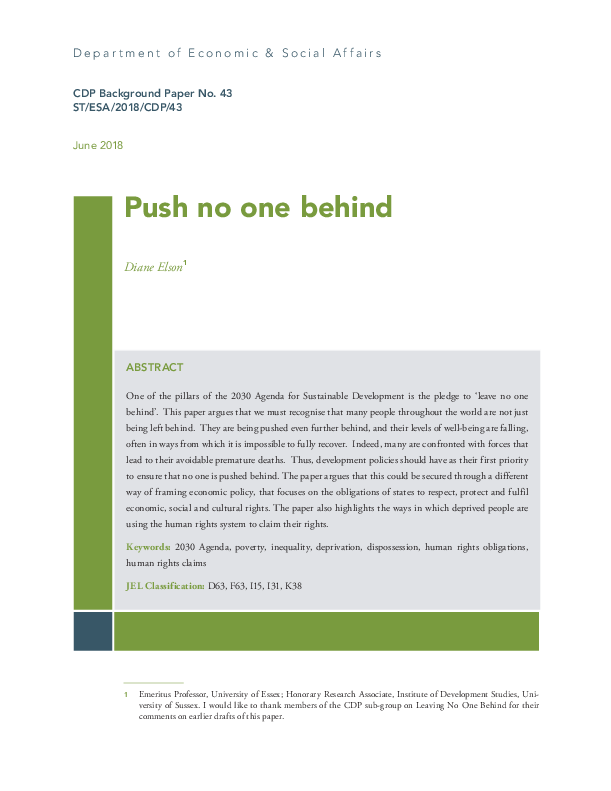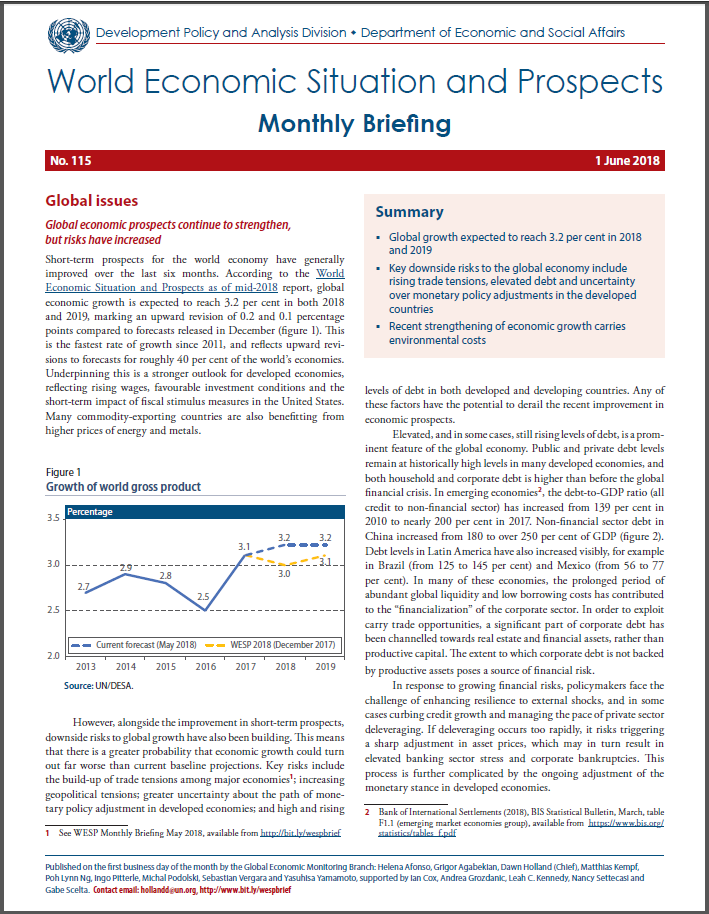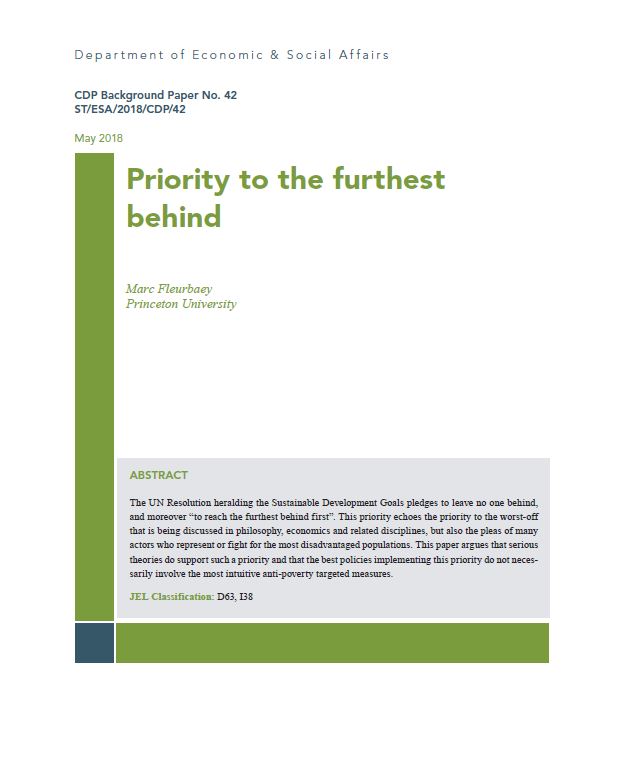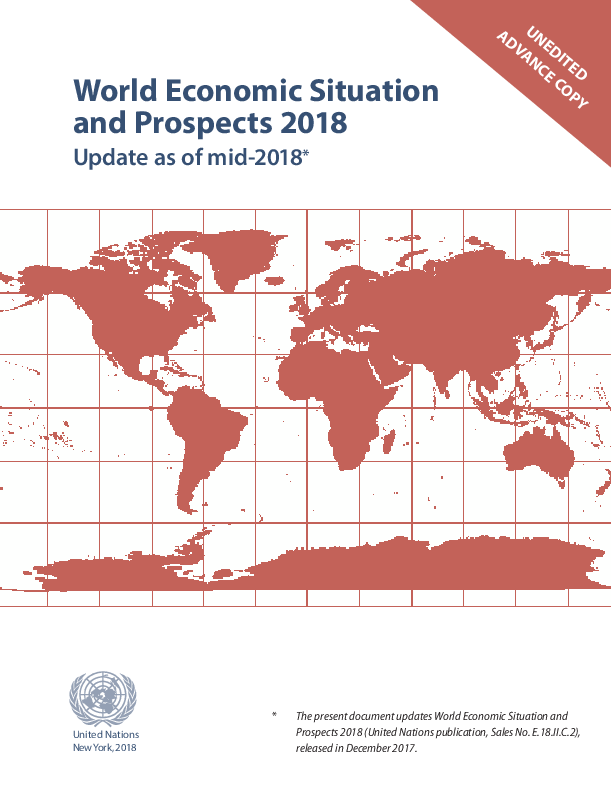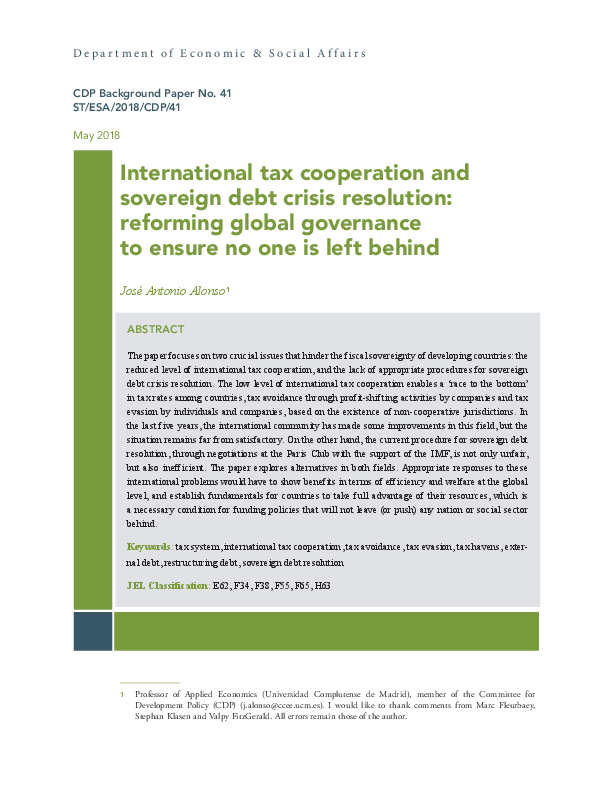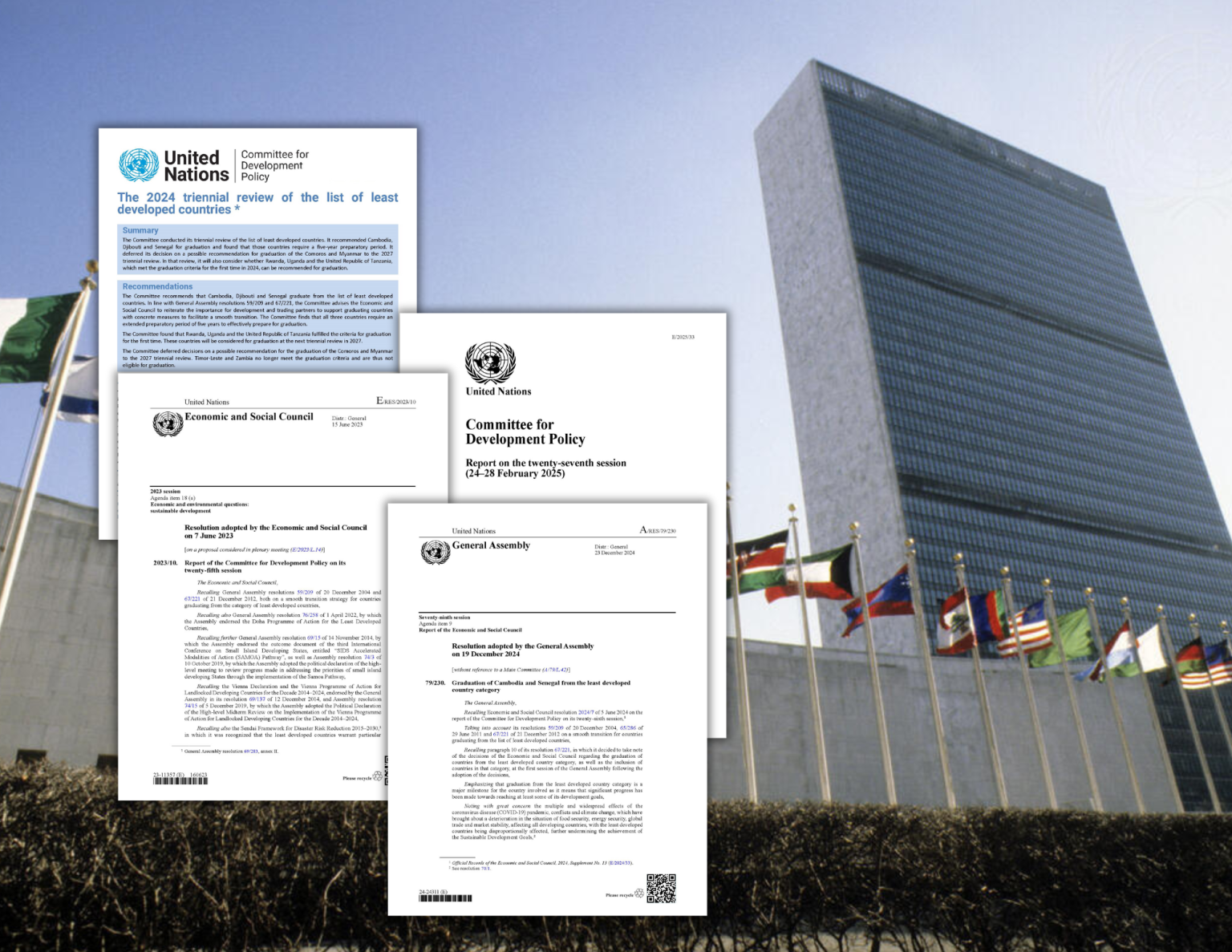Publications
Displaying 361 - 370 of 1084
Key downside risks to the global economy include rising trade tensions, elevated debt and uncertainty over monetary policy adjustments in the developed countries
Recent strengthening of economic growth carries environmental costs
عربي, 中文, English, Français,Русский, Español CDP excerpts on the report by theme Leaving no one behind
 Welcome to the United Nations
Welcome to the United Nations
